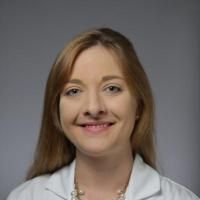Myeloablative conditioning with total body irradiation for AML: Balancing survival and pulmonary toxicity.
Date
2016-10
Journal Title
Journal ISSN
Volume Title
Repository Usage Stats
views
downloads
Citation Stats
Abstract
PURPOSE: The purpose of this study was to compare leukemia-free survival (LFS) and other clinical outcomes in patients with acute myelogenous leukemia who underwent a myeloablative allogeneic stem cell transplant with and without total body irradiation (TBI). METHODS AND MATERIALS: Adult patients with acute myelogenous leukemia undergoing myeloablative allogeneic stem cell transplant at Duke University Medical Center between 1995 and 2012 were included. The primary endpoint was LFS. Secondary outcomes included overall survival (OS), nonrelapse mortality, and the risk of pulmonary toxicity. Kaplan-Meier survival estimates and Cox proportional hazards multivariate analyses were performed. RESULTS: A total of 206 patients were evaluated: 90 received TBI-based conditioning regimens and 116 received chemotherapy alone. Median follow-up was 36 months. For all patients, 2-year LFS and OS were 36% (95% confidence interval [CI], 29-43) and 39% (95% CI, 32-46), respectively. After adjusting for known prognostic factors using a multivariate analysis, TBI was associated with improved LFS (hazard ratio: 0.63; 95% CI: 0.44-0.91) and OS (hazard ratio: 0.63; 95% CI, 0.43-0.91). There was no difference in nonrelapse mortality between cohorts, but pulmonary toxicity was significantly more common with TBI (2-year incidence 42% vs 12%,P< .001). High-grade pulmonary toxicity predominated with both conditioning strategies (70% and 93% of cases were grade 3-5 with TBI and chemotherapy alone, respectively). CONCLUSIONS: TBI-based regimens were associated with superior LFS and OS but at the cost of increased pulmonary toxicity.
Type
Department
Description
Provenance
Subjects
Citation
Permalink
Published Version (Please cite this version)
Collections
Scholars@Duke

Sarah Jo Stephens

Samantha Thomas
Samantha is the manager of the Duke Cancer Institute (DCI) Biostatistics Shared Resource. Collaboratively, she primarily works with physicians in DCI, specifically in research of Endocrine Neoplasia and Breast Cancer. She is also the director of the Biostatistics, Epidemiology, Research, and Design Methods (BERD) Core Training and Internship Program (BCTIP). Her professional experience involves study design, analysis, and reporting of clinical trials and observational studies. Her specific areas of interest include training of collaborative biostatisticians, modeling of non-linear associations, and application of partitioning analyses to identify homogeneous patient groups.

Mitchell Eric Horwitz
Allogeneic stem cell transplantation with a focus on the use of umbilical cord blood grafts; Allogenic stem cell transplantation for Sickle Cell Disease; Prevention of acute and chronic graft versus host disease; Improving immune recovery following alternative donor stem cell transplantation using donor graft manipulation.

Nelson Jen An Chao
My research interests are in two broad areas, clinical hematopoietic stem cell and cord blood transplantation and in the laboratory studies related to graft vs. host disease and immune reconstitution. On the clinical side we are currently conducting approximately 50 different clinical protocols ranging from preparatory regimens, supportive care studies and disease specific protocols. Most of these clinical studies are centered around studies of the sources of stem cells and the methods to improve the long term outcome. There are exploratory protocols for novel therapies such as dendritic cell therapy for several malignancies, antiangiogenesis therapy, graft engineering to prevent graft-versus-host disease and antigen specific T cells or non specific NK cells to prevent relapse. Moreover a strong focus of the program is to develop cord-blood transplantation for adult patients with hematologic malignancies. The laboratory studies center on understanding the immunological events that occur with graft-vs-host disease and methods to prevent this disease. The current efforts focus on understanding murine reconstitution following transplantation, use of a peptide polymer to block MHC class II recognition of minor histocompatibility antigens, use of T cell engineering to prevent graft-versus-host disease at the same time preserving a graft-versus-malignancy effect.
For more information see http://ed-media.mc.duke.edu/BMT.nsf

Christopher Ryan Kelsey
I specialize in the treatment of hematologic and thoracic malignancies. I have a special research interest in optimizing radiation therapy in lymphomas and leukemias, particularly consolidation radiation therapy in diffuse large B-cell lymphoma and total body irradiation in the setting of allogeneic stem cell transplantation. Other academic interests include cardiac toxicity after radiation therapy for lung cancer and optimizing stereotactic body radiation therapy for stage I non-small cell lung cancer.
Unless otherwise indicated, scholarly articles published by Duke faculty members are made available here with a CC-BY-NC (Creative Commons Attribution Non-Commercial) license, as enabled by the Duke Open Access Policy. If you wish to use the materials in ways not already permitted under CC-BY-NC, please consult the copyright owner. Other materials are made available here through the author’s grant of a non-exclusive license to make their work openly accessible.
